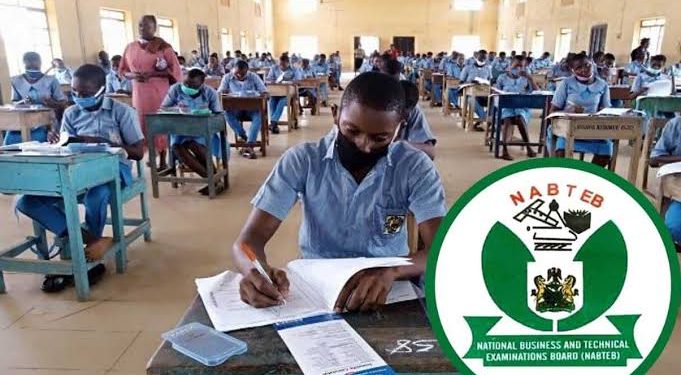The National Business and Technical Examinations Board (NABTEB) has commenced the review and validation of 26 trade syllabi for technical colleges across the country, marking a major step in efforts to modernise Nigeria’s technical and vocational education. The five-day exercise, which began on September 8 in Abuja, is aimed at aligning the nation’s technical training with global best practices while preparing young Nigerians for a rapidly changing labour market.
NABTEB Registrar, Dr. Mohammed Mohammed, described the exercise as a transformative initiative that will reshape how technical education is delivered. He explained that the revised syllabi are designed to equip students with practical, industry-relevant skills across both traditional and emerging sectors. Among the new focus areas are robotics, coding and machine learning, automotive mechatronics, smart agriculture, solar photovoltaic (PV) installations, and cinematography.
According to him, the inclusion of forward-looking and environmentally conscious subjects such as solar PV and smart agriculture reflects Nigeria’s recognition that its future economic growth must be both innovative and sustainable. He added that NABTEB would provide training for educators, introduce new assessment tools, and enforce strict quality assurance standards to ensure the reforms are effectively implemented.
The registrar also commended the collaboration with the National Board for Technical Education (NBTE) as a model of inter-agency cooperation and highlighted the role of industry stakeholders in shaping the curricula to match labour market demands. He urged companies and organisations to continue providing mentorship, internship placements, and workplace learning opportunities for technical students.
The Executive Secretary of NBTE, Prof. Idris Bugaje, represented at the event by Hajia Hajara Abdulkadri, stressed that implementation of the revised curricula across technical colleges would be key to strengthening Nigeria’s vocational training ecosystem. He noted that the review is not only timely but necessary for preparing young Nigerians with the competencies required to thrive in a technology-driven global economy.
The Federal Ministry of Education also emphasised the importance of ensuring the reforms are matched with modern teaching methods. Dr. Muyibat Olodu, Director of Technology and Science Education, represented by Mr. Kola Osundeyi, said the updated syllabi must integrate emerging technologies and practical skills to raise the quality and relevance of technical education.
This review builds on reforms initiated in May 2024 when NABTEB updated technical college syllabi for the first time in 14 years. That phase introduced 14 new subjects, including renewable energy, computer and GSM repairs, refrigeration and air conditioning, fashion design, cosmetology, catering craft, plumbing, and pipe fitting. The latest expansion now covers 26 trade areas, adding cutting-edge fields like robotics and machine learning alongside traditional crafts.
The reforms come at a time of rising interest in Nigeria’s Technical and Vocational Education and Training (TVET) programme. Applications for the TVET entrance examinations surged by nearly 300 per cent, from 7,547 in 2024 to 30,000 in 2025, following government-backed incentives to encourage technical education. The three-year programme places strong emphasis on hands-on training and offers graduates dual certification: the National Technical or Business Certificate (NTC/NBC) and the competency-based National Skills Qualification (NSQ).
Despite the rising enrolment, recent examination results reveal gaps in performance. Out of over 30,000 candidates, just 9,389 passed, representing 39 per cent. Only 316 candidates, about 1.31 per cent, scored 70 per cent and above, while eight candidates achieved the highest rank, representing just 0.03 per cent.
Analysts say these results highlight both the challenges and opportunities of technical education reform. On one hand, the surge in enrolment signals growing recognition of vocational training as a viable pathway for young Nigerians. On the other, the low pass rates suggest an urgent need for improved teaching quality, better infrastructure, and stronger industry linkages to ensure students can meet global standards.
With Nigeria facing youth unemployment and a growing population projected to exceed 400 million by 2050, stakeholders argue that expanding access to quality technical education is critical for building a skilled workforce that can power inclusive growth, drive industrialisation, and strengthen the competitiveness of small and medium-sized enterprises.










